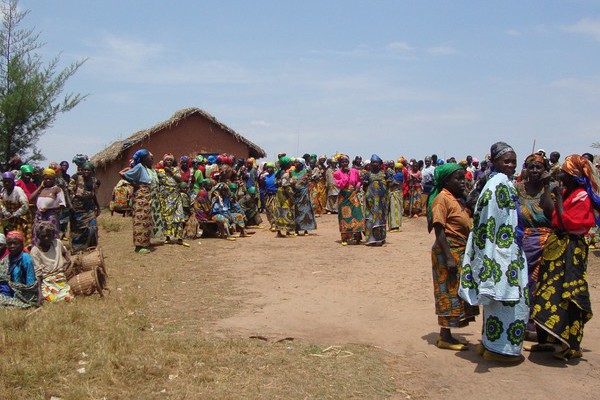Africa’s Great Lakes region has experienced recurrent conflicts that have claimed millions of lives since the 1960s. In Burundi, the Democratic Republic of Congo (DRC) and Rwanda, many of the conflicts are deeply interconnected. Although communities in the region coexisted peacefully in the past, they attest that the trust between them gradually eroded over time. Conflicts that were fueled by the manipulation of identities and stereotypes, and by leaders seeking power and control of economic resources contributed to the breakdown of trust. These negative stereotypes were progressively internalized by local communities and handed down over the decades to successive generations. Strong mistrust and suspicion have as a result emerged as fundamental obstacles for sustainable peace among the peoples of the three bordering countries.
Beginning in 2013, Interpeace has been implementing the “Cross-Border Dialogue for Peace in the Great Lakes” programme in partnership with six partner organizations from the region. These are the Centre for Conflict Alert and Prevention (CENAP) in Burundi; Never Again Rwanda (NAR) in Rwanda; and in the DRC, Action pour la Paix et la Concorde (APC), Pole Institute, Centre d’Etudes Juridiques Appliquées (CEJA) and Réseau d’Innovation Organisationnelle (RIO). Prior to the launch of the programme in 2013, Interpeace and its partner teams carried out an exploratory and preparatory process to consult the Great Lakes populations on the relevance of a regional programme and the strategic focus it should have. The consultations showed a strong desire for cross-border dialogue from various actors in the region. The theme of identity-based stereotypes and manipulation stood out as a major obstacle for sustainable peace in the region.
The goal of this cross-border programme is to establish a regional structure that can help rebuild trust and deconstruct negative stereotypes between Burundians, Congolese and Rwandans. This is pursued through regular cross-border dialogue spaces where communities can openly discuss the root causes of the conflicts afflicting them, as well as develop consensus-based and locally-owned solutions.
For more effective conflict prevention and responsive governance, an important aspect involves building relationships between decision makers and the communities they serve. The programme’s dialogue groups have provided spaces for decision makers to connect with and consult the local population on their needs, priorities and understanding of the conflicts that afflict the region. It has become evident that these spaces and participants involved in them have inspired decision makers to directly engage local communities – both within and beyond the dialogue spaces.
In 2019, the Great Lakes programme will seek to strengthen resilience capacities for reconciliation mechanisms and conflict management, as well as work to reduce the vertical gap between citizens and decision makers at the local, national and regional levels.

